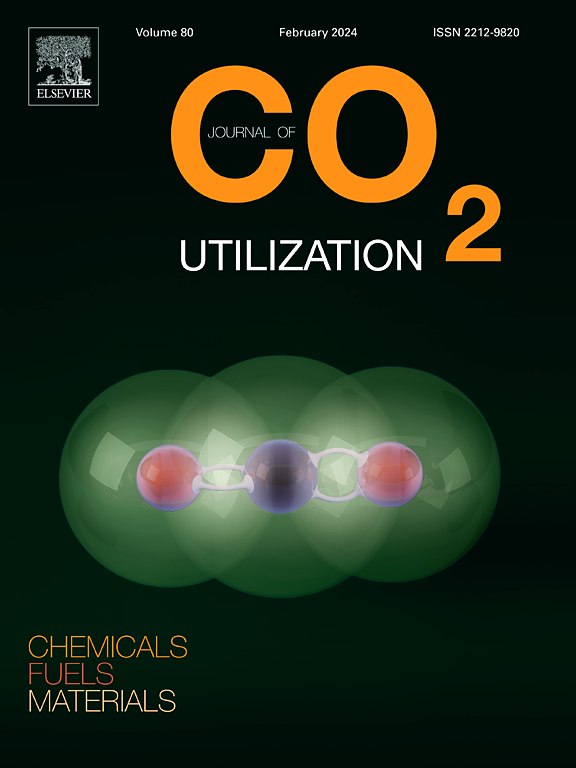微交联热塑性聚氨酯泡沫,具有超低密度,优异的回弹性和超临界CO2/N2循环利用
IF 7.2
2区 工程技术
Q1 CHEMISTRY, MULTIDISCIPLINARY
引用次数: 0
摘要
超临界CO2发泡可以生产性能优异的缓冲材料,如热塑性聚氨酯(TPU)泡沫。然而,TPU泡沫塑料普遍面临机械回弹性低、回收难等问题。TPU的发泡性能和产品的尺寸稳定性受到基体分子结构的影响。本研究选择TPU专用改性剂二苯基甲烷二异氰酸酯(MDI)母粒,制备具有微交联结构和展链性能的改性TPU。微交联结构限制了分子链的大规模弛豫,提高了TPU的流变性能和发泡性能。TPU泡沫的最大膨胀比由14.5提高到28.3。通过CO2/N2发泡优化收缩问题。通过改变N2分压,制备了不同稳定膨胀比(7 ~ 15.9)的TPU泡沫。超高的膨胀率和均匀的孔结构为TPU泡沫提供了高的相对应力软化(bbb95 %)、低的相对滞后损失(∆U/U≈5 %)和优异的回弹性(~ 70.1 %)。本产品有望实现TPU泡沫的轻量化和高效的能量回收。经过闭环可持续回收发泡过程后,可回收的RTPU泡沫仍保持高膨胀率和低能量损失。本文章由计算机程序翻译,如有差异,请以英文原文为准。
Micro-crosslinked thermoplastic polyurethane foam with ultra-low density, excellent resilience and recycling by supercritical CO2/N2
Supercritical CO2 foaming can produce cushioning materials with excellent performance, such as thermoplastic polyurethane (TPU) foam. However, TPU foam generally face the issues of low mechanical resilience and hard recycling. The foaming properties of TPU and the dimensional stability of the product are affected by the molecular structure of the matrix. In this study, the diphenylmethane diisocyanate (MDI) masterbatch, a special modifier for TPU, was selected to prepare modified TPU with micro-crosslinking structure and chain extension. The micro-crosslinking structure limited the large-scale relaxation of molecular chains and enhanced the rheological properties and foaming behavior of TPU. The maximum expansion ratio of TPU foam was increased from 14.5 to 28.3. The shrinkage problem was optimized through CO2/N2 foaming. TPU foams with different stabilized expansion ratios (7–15.9) were produced by changing the N2 partial pressure. The ultra-high expansion ratio and uniform cell structure provided high relative stress softening (>95 %), low relative hysteresis loss (∆U/U≈5 %) and excellent resilience (∼70.1 %) for TPU foam. This product is promised to realize light-weighting and efficient energy recovery of TPU foam. After a closed-loop sustainable recycling and foaming process, the recyclable RTPU foam still maintained high expansion ratio and low energy loss.
求助全文
通过发布文献求助,成功后即可免费获取论文全文。
去求助
来源期刊

Journal of CO2 Utilization
CHEMISTRY, MULTIDISCIPLINARY-ENGINEERING, CHEMICAL
CiteScore
13.90
自引率
10.40%
发文量
406
审稿时长
2.8 months
期刊介绍:
The Journal of CO2 Utilization offers a single, multi-disciplinary, scholarly platform for the exchange of novel research in the field of CO2 re-use for scientists and engineers in chemicals, fuels and materials.
The emphasis is on the dissemination of leading-edge research from basic science to the development of new processes, technologies and applications.
The Journal of CO2 Utilization publishes original peer-reviewed research papers, reviews, and short communications, including experimental and theoretical work, and analytical models and simulations.
 求助内容:
求助内容: 应助结果提醒方式:
应助结果提醒方式:


